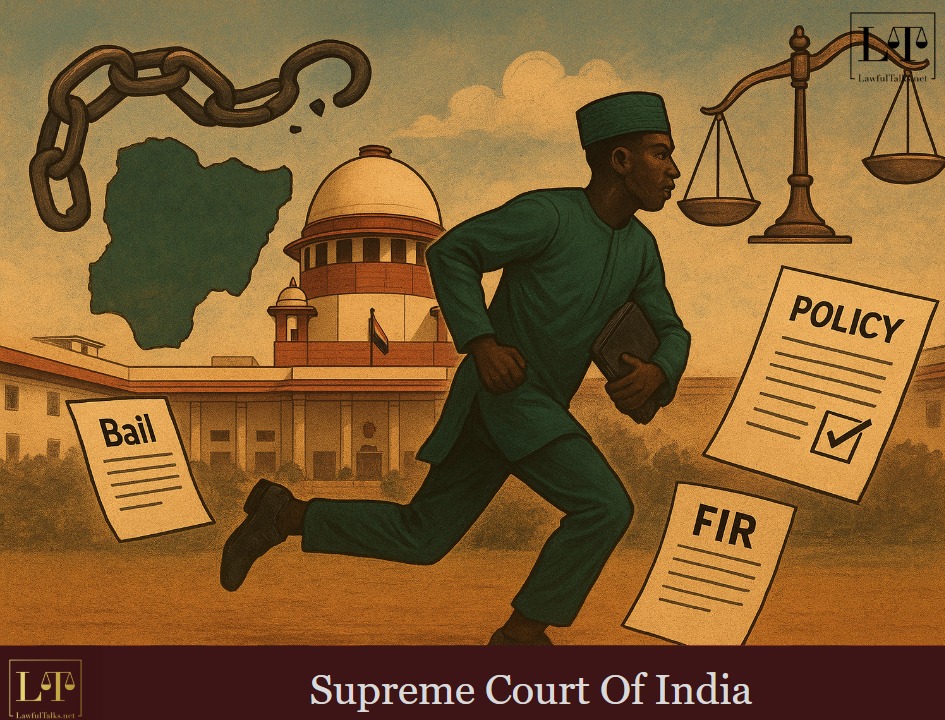Allahabad HC Sets Aside Afzal Ansari's Conviction, Allows Him to Continue as MP

When an individual accused of a serious offence is granted bail, the primary expectation is that they will appear for trial and participate in the legal process. However, complications arise when the accused is a foreign national who absconds and leaves the country. The Supreme Court recently dealt with such a situation, highlighting a significant gap in the current system that may require closer examination.

A bench of Justice Dipankar Datta and Justice A.G. Masih, while disposing of a bail cancellation matter, observed that the Union is free to “formulate an appropriate policy or initiate such further action as deemed necessary and proper so that foreign nationals do not flee the course of justice after committing crimes in India.” The remark highlights the seriousness of the court in pushing for a clear policy framework on matters of this kind .
Background:
The case goes back to a cyber fraud First Information Report (FIR) registered in Jharkhand in 2019 against a Nigerian national. He was charged under Sections 419, 420, 467, 468, 471 and 120B of the IPC, along with Section 66(D) of the IT Act, 2000.
The Jharkhand High Court granted him bail on May 13, 2022. However, instead of following the conditions, the accused absconded to Nigeria, making it impossible for the authorities to bring him to trial.
The State of Jharkhand then approached the Supreme Court, seeking cancellation of the bail. In November 2024, the Court expressed concern about a growing trend of foreign nationals accused in India simply jumping bail and becoming untraceable. It said that a proper procedure should be put in place to handle such cases.
Later, the Union informed the Court about certain guidelines framed on the basis of a Ministry of Home Affairs order dated 04.12.2019, which dealt with investigation abroad, issuing of Letters Rogatory (LRs), MLA requests, and service of summons or judicial documents in criminal cases. But the Court felt these did not go far enough to address the specific problem of absconding foreign nationals.
In December 2024, the Supreme Court formally cancelled the bail and directed both the Union and the State to take all possible steps to bring the accused back. On August 26, 2025, the Union updated the Court that a communication had been sent to Nigerian authorities through the High Commission in Abuja, invoking the principle of “Assurance of Reciprocity.” Still, without a bilateral extradition treaty between India and Nigeria, the chances of extradition remained very low.
With no real diplomatic solution in sight, the Court closed the case but left the matter open for the Union to frame a stronger policy on the issue of foreign nationals facing trial who cross borders to evade the judicial process.
Case Title: THE STATE OF JHARKHAND VERSUS ALEX DAVID @ M.U. HENRY & ANR., SLP(Crl) No(s). 8629/2022

Nandani Mishra
Second Year, B.SC LLB, (cybersecurity) Hons, National law University
Latest Posts
Categories
- International News 19 Posts
- Supreme Court 347 Posts
- High Courts 361 Posts


















































































































































































































































































































































































































































































































































































































































































































































